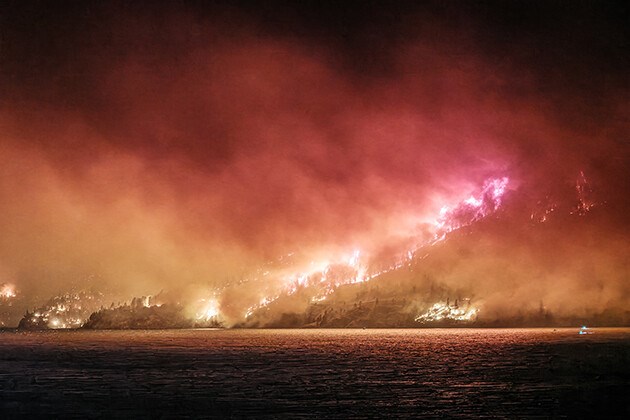Wildfires will be the hot topic at a UBCO symposium next week.
The three-day conference will feature some of the leading wildfire experts, including Dr. Paul Hessburg with the U.S. Forest Service, West Kelowna Fire Chief Jason Brolund, and Robert Gray, an AFE certified wildland fire ecologist, among others.
The conference is hosted by Dr. Mathieu Bourbonnais and Dr. Lori Daniels.
The goal of the conference is to shed light on the impacts of wildfires and their costs to the province. One of the main points of discussion focuses on the idea that the 2017 to 2023 fire seasons were not anomalies but a new and escalating reality fueled by climate change.
Bourbonnais, assistant professor at UBCO, says the event is tailored toward innovative wildfire solutions.
“We want to move beyond recognizing the problem to finding and implementing solutions that address the whole-of-society issue of wildfire. This is about understanding what’s happening around our communities and making us better prepared,” says Bourbonnais.
The symposium is geared toward as broad an audience as possible and speakers will touch on new technology and new tactics.
“We want to bring together different segments of society, including First Nations, health sciences, forestry, wildlife ecology, the insurance sector and the economy to discuss solutions,” Bourbonnais says.
More than 20 experts in various fields will speak at the conference and some will even travel to specific sites impacted by recent wildfires.
Conference attendees will receive updates on the latest research happening around the Okanagan.
UBCO managed to have 15 sensors in the middle of the McDougall Creek fire, and even though six of them didn't survive, they provided valuable data like wind speed and temperatures right up until they were destroyed.
“This data helps us understand where our highest risk areas are around Kelowna and how to address them. Our team has been collecting data and validating results for three years as we continue to build and develop our system of affordable, easily deployed sensors.
"The system is filling real gaps in our understanding of wildfire risk and how we can use the data operationally with wildfire management agencies and fire departments,” says Bourbonnais.
The symposium runs from June 3-5 and the opening event Monday night at the Kelowna Community Theatre, Ashes to Action: Learning to Live with Wildfire, is free to the public.
The conference is meant for anyone living in the wildland urban interface. For more information or to register click here.





